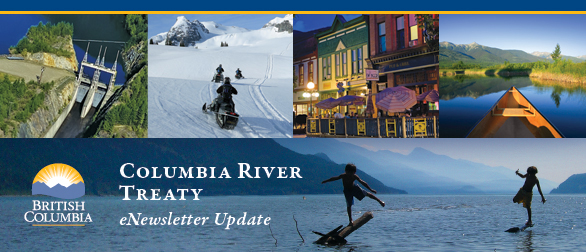Columbia River Treaty
Edition:

Government of British Columbia Decision on the Future of the Columbia River Treaty
On March 13, 2014 the Honourable Bill Bennett, Minister of Energy and Mines and Minister Responsible for Core Review, announced the release of the Government of British Columbia’s decision to continue the Columbia River Treaty and seek improvements within its existing framework.
B.C.’s decision includes 14 principles that will guide B.C. in any future discussions with Canada and the U.S. on the future of the Treaty. The decision and principles follow more than two years of geotechnical, social, economic and legal studies and an extensive consultation process with various levels of government, stakeholder groups, First Nations and the public, so that the future of the Treaty will be shaped by the people it impacts.
The principles include considerations around flood control, hydropower generation, ecosystems and climate change, while allowing for flexibility moving forward to adapt to evolving economic, social and environmental circumstances in each country. The principles also recognize ongoing impacts in B.C. to meet Treaty requirements in the U.S. B.C.’s final decision concludes that both countries need to recognize that for every cost associated with the Treaty provisions, there are some very important benefits that should, under the spirit of the Treaty, be shared by both parties.
B.C. has engaged in discussions with Canada on how both governments will work together in anticipation of any future potential negotiations with the U.S.
To view the B.C. decision and guiding principles, please visit: http://blog.gov.bc.ca/columbiarivertreaty/files/2012/03/BC_Decision_on_Columbia_River_Treaty.pdf

